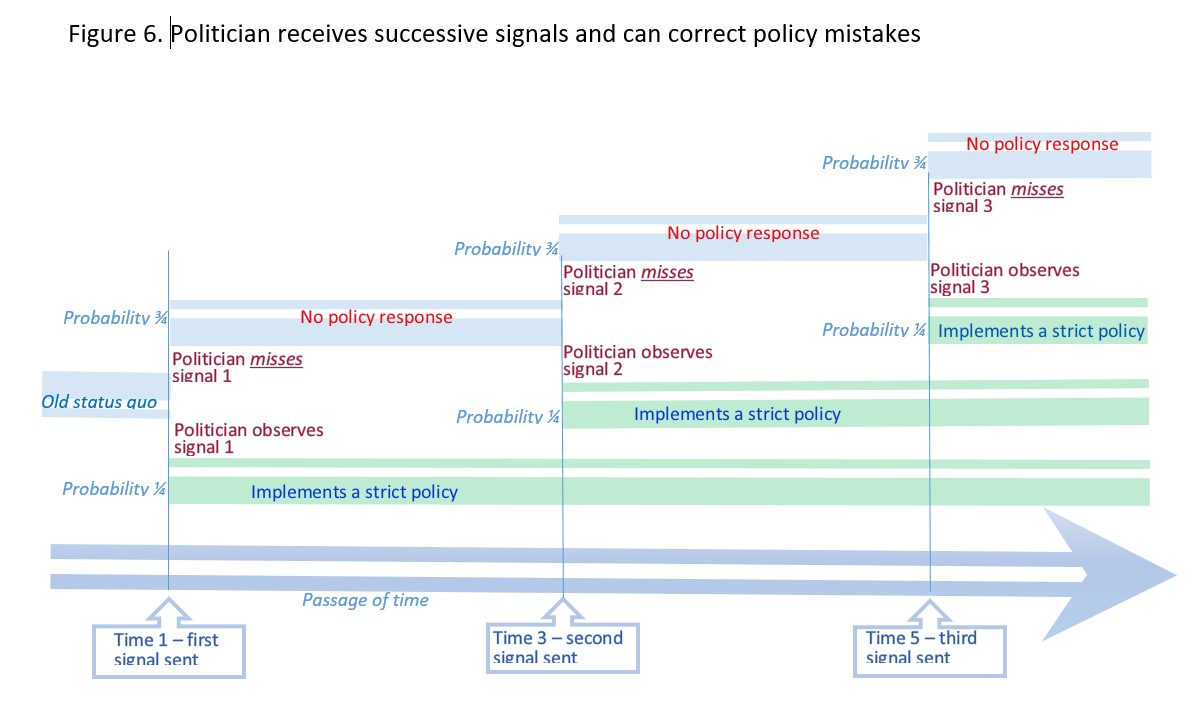Policy dissemination: observing the policy response in peer jurisdictions helps a politician to make the right choice |
||
Beliefs update – actions of another policy maker indicate which signal that policy
maker received
|
Cost reduction – both technological and political costs of implementing a strict policy are lowered for the politician after it is implemented in another jurisdiction |
|
Arrival of additional information that either repeats or strengthens the original signal |
||
If the same signal is repeated again, a politician has another chance to receive it
|
If a new, stronger signal is sent, the chance that the politician will receive it is higher than in the previous period with a weaker signal |
|
Likely negative factors due to policy redundancies |
||
Implementation inefficiencies |
||
- due to replicating efforts within jurisdictions |
- due to outbidding for resources |
|
Enforcement inefficiencies |
||
- due to inter-jurisdictional policy discrepancies |
- due to ‘arbitrage’ opportunities for economic agents |
|
Suboptimal policy design in local jurisdictions due to their resource limitations |
||
Policy inconsistency and ambiguities if policy-makers at different levels articulate conflicting approaches and implement contradictory enforcement |
||

